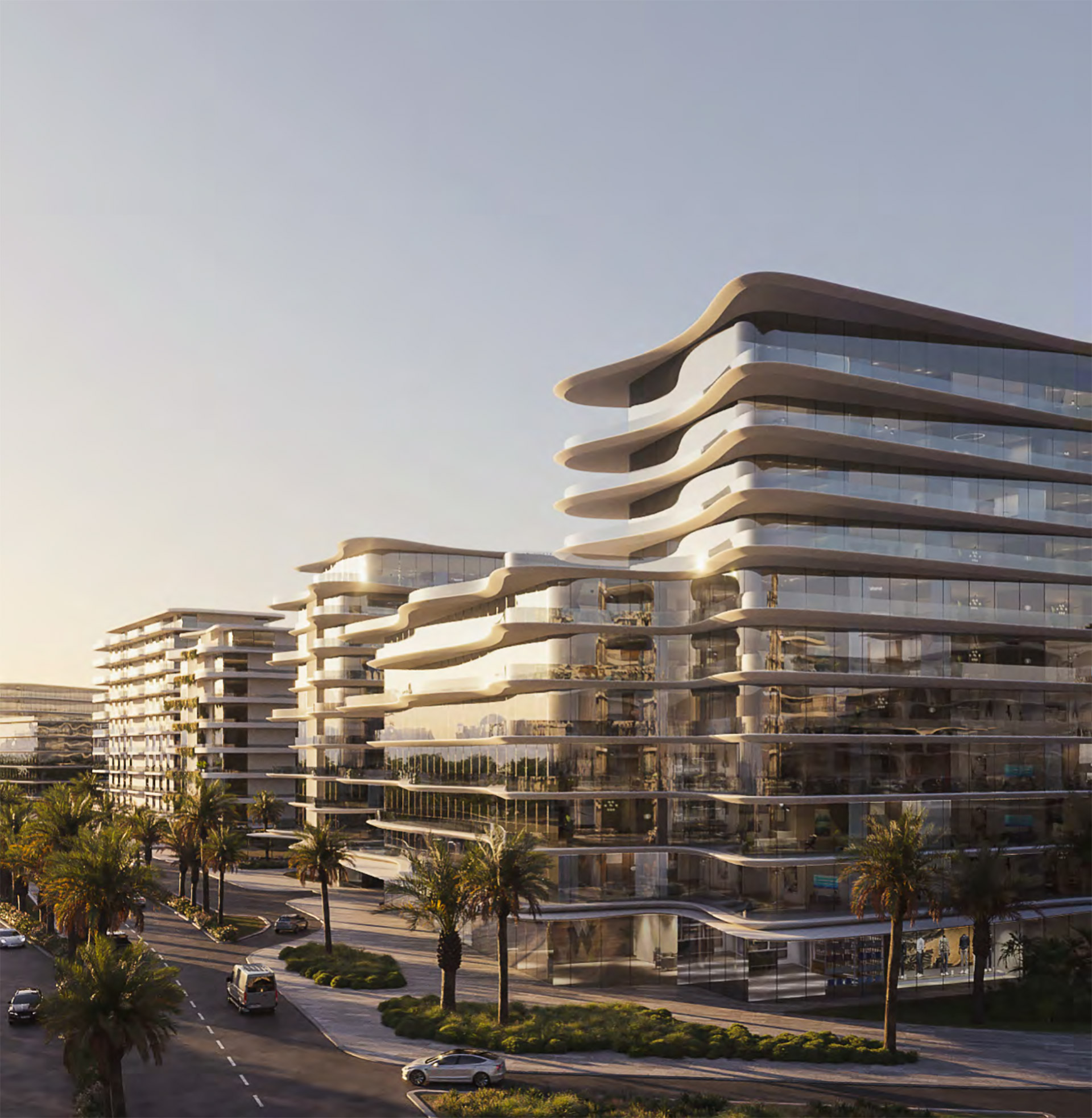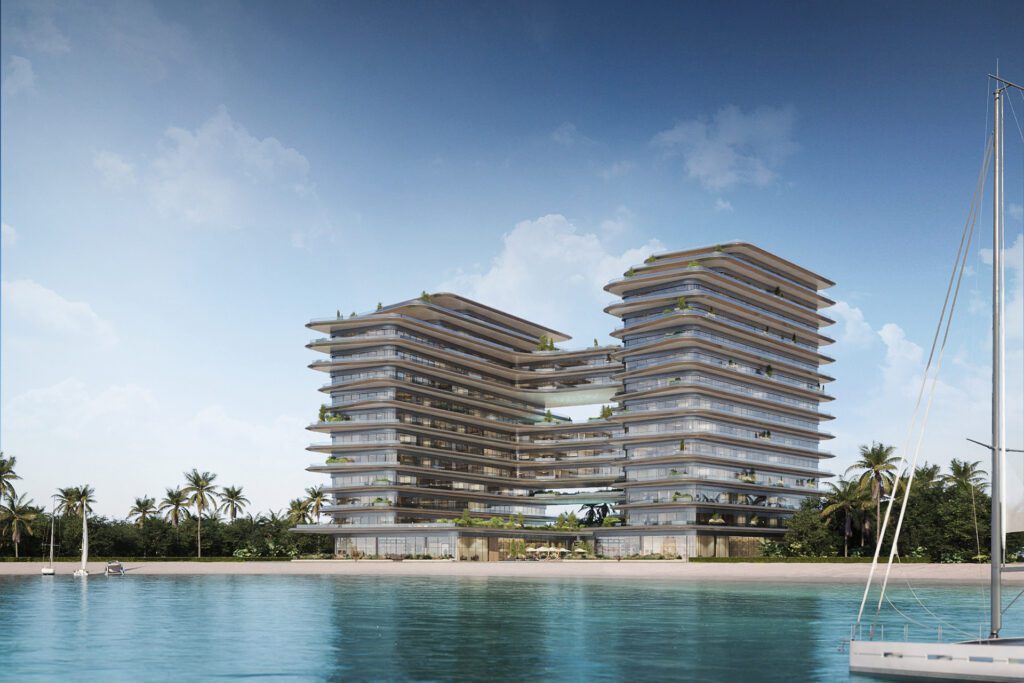Dubai, a city known for its cutting-edge architecture and modernity, continues to astonish the world with its iconic skyline and forward-thinking developments. The towering skyscrapers, luxurious hotels, and unique structures that define Dubai’s landscape are the result of visionary design and unparalleled expertise. At the heart of this transformation are the architects in Dubai who have redefined the city’s skyline and set new benchmarks for architectural excellence. These architects, including some of the most innovative hospitality architecture firms, are pushing the boundaries of design and technology, creating spaces that not only serve a functional purpose but also captivate the imagination.
The Rise of Modern Architecture in Dubai
Dubai’s architectural journey is a testament to its rapid growth and ambition. From humble beginnings to becoming a global hub for business, tourism, and luxury living, Dubai’s skyline has become one of the most recognizable in the world. The city’s commitment to growth and innovation has led to a surge in demand for architects in Dubai who can deliver distinctive designs for both residential and commercial projects.

A major factor in Dubai’s architectural success is its ability to blend tradition with modernity. This fusion of the old and the new can be seen in numerous buildings, from the contemporary lines of the Burj Khalifa to the more traditional touches of the Dubai Opera. Architects are tasked with creating structures that not only stand out but also complement Dubai’s rich cultural heritage while keeping pace with global design trends.
The Role of Architects in Dubai in Shaping Urban Development
The influence of architects in Dubai extends far beyond mere building design. These professionals are responsible for developing spaces that contribute to the city’s broader vision of economic growth and urban sustainability. Dubai’s architects are constantly challenged with designing buildings that are energy-efficient, sustainable, and adaptive to the city’s climate.
One of the key areas where Dubai’s architects have excelled is in the creation of mixed-use developments. These projects combine residential, commercial, and recreational spaces into cohesive communities that offer convenience and quality of life. They are also environmentally friendly, incorporating green spaces and sustainable materials that minimize the carbon footprint of construction.
As Dubai moves towards being a global leader in smart city innovations, architects are integrating technology into their designs. From smart buildings that optimize energy consumption to cutting-edge urban planning that promotes sustainability, architects in Dubai are shaping the city’s future with innovation at the core of their designs.
Hospitality Architecture Firms: Transforming Dubai’s Tourism Industry
Dubai has long been a popular destination for tourists from around the world, and the city’s hospitality architecture firms have played a crucial role in developing world-class hotels, resorts, and leisure spaces. These firms specialize in creating luxurious, functional, and visually striking spaces that cater to the city’s high-profile international visitors.
One of the most notable examples of the influence of hospitality architecture firms in Dubai is the Burj Al Arab. This iconic seven-star hotel, shaped like the sail of a dhow, has become synonymous with luxury and elegance. The architectural vision behind such landmarks is driven by the desire to provide guests with an unforgettable experience—something that hospitality architecture firms in Dubai do exceptionally well.
Another outstanding example is the Palm Jumeirah, where several luxury resorts and hotels have been designed to offer opulence and exclusivity. Hospitality architecture firms in Dubai work closely with developers to ensure that these spaces not only provide top-tier services but also deliver unique, memorable experiences for visitors. These projects emphasize the seamless integration of aesthetics, functionality, and sustainability, making them standout destinations.
Sustainable Design: A Growing Focus Among Architects in Dubai
As Dubai continues to grow, so does its responsibility to minimize its environmental impact. Architects in Dubai are increasingly focused on sustainable and green architecture, integrating energy-efficient technologies and eco-friendly materials into their designs. Sustainability is not just about reducing the carbon footprint; it’s about creating spaces that promote well-being and minimize resource consumption.
For example, the sustainable design of the Dubai Frame, one of the city’s most innovative structures, showcases how architects in Dubai are integrating eco-friendly practices into their work. The frame is designed to maximize natural light and minimize energy use, offering panoramic views of the city while maintaining environmental responsibility.
Similarly, hospitality architecture firms are focusing on sustainable tourism infrastructure. Hotels and resorts are being designed with energy-efficient systems, water conservation techniques, and eco-friendly building materials to meet the growing demand for environmentally conscious travel experiences.

Technology and Innovation in Dubai’s Architectural Landscape
The integration of technology into architectural design has revolutionized the way architects in Dubai approach their projects. From advanced 3D modeling software to artificial intelligence-driven design processes, the use of technology in architecture is enabling architects to push the boundaries of what’s possible.
One prominent example is the use of parametric design, which allows architects to create complex and futuristic structures that were previously unimaginable. This technology is commonly used in the design of skyscrapers and large-scale projects in Dubai, where the demand for innovative, cutting-edge designs is at its peak.
For hospitality architecture firms, the challenge lies in designing spaces that are both futuristic and functional. The use of smart technologies such as automated systems for climate control, lighting, and security is becoming increasingly common in high-end hotels and resorts. These technologies enhance the guest experience, providing a seamless, comfortable environment for travelers.
The Future of Architecture in Dubai
The future of architecture in Dubai looks promising, with architects in Dubai continuing to innovate and challenge traditional design concepts. As the city aims to position itself as a global leader in technology, sustainability, and luxury living, architects will play a central role in shaping its future. With a growing emphasis on green building practices and smart cities, the architectural landscape in Dubai will continue to evolve, making it one of the most exciting cities for design and innovation.
The integration of digital technologies, sustainability, and the blending of traditional and modern architectural styles will ensure that Dubai remains at the forefront of global architecture for years to come. Hospitality architecture firms will continue to develop iconic spaces that offer unique experiences to visitors while adhering to the principles of sustainability and luxury.
Conclusion
Dubai’s architectural landscape is a testament to the creativity, innovation, and expertise of the architects in Dubai who are shaping the city’s growth and development. With a focus on sustainability, luxury, and cutting-edge technology, these architects and hospitality architecture firms are designing spaces that are not only visually stunning but also practical and eco-friendly. Companies like ZNera Space are playing a significant role in this transformation, bringing their expertise in designing structures that combine functionality with aesthetic appeal. As Dubai continues to evolve, the work of these architects will remain integral to the city’s success as a global leader in architecture and urban design.



